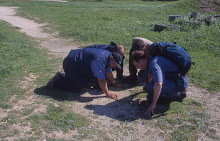Nonostante il baronato, nonostante le cordate e i gruppi di potere, l'Università è sostanzialmente autogestita. Si tratta in fin dei conti di un privilegio medievale, concesso dal sovrano e dalla chiesa ai primi atenei, che è stato mantenuto anche in epoca moderna perché difficilmente il sistema educativo superiore potrebbe funzionare altrimenti. Questa autogestione crea un clima molto meno gerarchico di altri contesti della società, ma ha il prezzo di una spiccata autoreferenzialità del mondo universitario che si riflette in un certo infantilismo di coloro che ne fanno parte,
Tuttavia l'università non è un centro sociale, e questo perché i finanziamenti provengono dallo stato e dall'industria, non dall'autofinanziamento, e questo fa sì che l'indipendenza dell'Università funziona solo fin tanto che l'università non si immischia di politica, Le università americane, che hanno una percentuale cospicua di autofinanziamento tramite le altissime tasse universitarie hanno infatti un tasso di coinvolgimento nella politica molto maggiore delle università europee,

